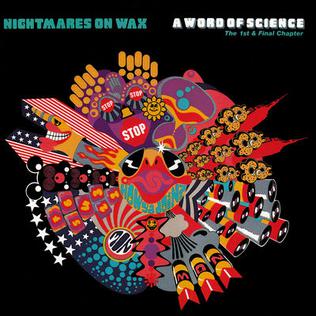
Drum and bass is a genre of electronic dance music characterised by fast breakbeats with heavy bass and sub-bass lines, samples, and synthesizers. The genre grew out of the UK's jungle scene in the 1990s.

A drum machine is an electronic musical instrument that creates percussion sounds, drum beats, and patterns. Drum machines may imitate drum kits or other percussion instruments, or produce unique sounds, such as synthesized electronic tones. A drum machine often has pre-programmed beats and patterns for popular genres and styles, such as pop music, rock music, and dance music. Most modern drum machines made in the 2010s and 2020s also allow users to program their own rhythms and beats. Drum machines may create sounds using analog synthesis or play prerecorded samples.
Breakbeat is a broad type of electronic music that uses drum breaks, often sampled from early recordings of funk, jazz, and R&B. Breakbeats have been used in styles such as Florida breaks, hip hop, jungle, drum and bass, big beat, breakbeat hardcore, and UK garage styles.

Digital music technology encompasses the use of digital instruments to produce, perform or record music. These instruments vary, including computers, electronic effects units, software, and digital audio equipment. Digital music technology is used in performance, playback, recording, composition, mixing, analysis and editing of music, by professions in all parts of the music industry.

A groovebox is a self-contained electronic or digital musical instrument for the production of live, loop-based electronic music with a high degree of user control facilitating improvisation. The term "Groovebox" was originally used by Roland Corporation to refer to its MC-303, released in 1996. The term has since entered general use, and the concept dates back to the Movement Computer Systems Drum Computer in 1981 and Fairlight CMI Page R in 1982.
Jungle is a genre of electronic music that developed out of the UK rave scene and Jamaican sound system culture in the 1990s. Emerging from breakbeat hardcore, the style is characterised by rapid breakbeats, heavily syncopated percussive loops, samples, and synthesised effects, combined with the deep basslines, melodies, and vocal samples found in dub, reggae and dancehall, as well as hip hop and funk. Many producers frequently sampled the "Amen break" or other breakbeats from funk and jazz recordings. Jungle was a direct precursor to the drum and bass genre which emerged in the mid-1990s.
A music workstation is an electronic musical instrument providing the facilities of:

A sampler is an electronic musical instrument that records and plays back samples. Samples may comprise elements such as rhythm, melody, speech, sound effects or longer portions of music.
Techstep is a dark subgenre of drum and bass that was created in the mid-1990s.
Electro is a genre of electronic dance music directly influenced by the use of the Roland TR-808 drum machines, with an immediate origin in early hip hop and funk genres. Records in the genre typically feature heavy electronic sounds, usually without vocals; if vocals are present, they are delivered in a deadpan manner, often through electronic distortion such as vocoding and talkboxing. It palpably deviates from its predecessor boogie by being less vocal-oriented and more focused on electronic beats produced by drum machines.
Dominic Angas, better known by his stage name Dom & Roland, is a British drum and bass DJ and record producer. Active since the mid-1990s, Angas is recognised for his contributions to the techstep subgenre and his work with labels such as Moving Shadow, Metalheadz, and his own imprint, Dom & Roland Productions. His debut album, Industry (1998), is regarded as a significant release in the late 1990s drum and bass scene. In addition to his solo work, Angas has contributed to the development of the darker, experimental edge of drum and bass through numerous collaborations and remixes.
A rompler is an electronic musical instrument that plays pre-fabricated sounds based on audio samples. The term rompler is a blend of the terms ROM and sampler. In contrast to samplers, romplers do not record audio. Both may have additional sound editing features, such as layering several waveforms and modulation with ADSR envelopes, filters and LFOs.

Critical Beatdown is the debut studio album by American hip hop group Ultramagnetic MCs, released on October 4, 1988, by Next Plateau Records. The album was produced primarily by the group's rapper and producer Ced-Gee, who employed an E-mu SP-1200 sampler as the album's main instrument. Music journalists have noted the album for its innovative production, funk-based samples, self-assertive themes, and clever lyrical rhymes by Ced-Gee and rapper Kool Keith.

Hip hop production is the creation of hip hop music in a recording studio. While the term encompasses all aspects of hip hop music creation, including recording the rapping of an MC, a turntablist or DJ providing a beat, playing samples and "scratching" using record players and the creation of a rhythmic backing track, using a drum machine or sequencer, it is most commonly used to refer to recording the instrumental, non-lyrical and non-vocal aspects of hip hop.
Drum and bass is an electronic music genre that originated in the UK rave scene having developed from breakbeat hardcore. The genre would go on to become one of the most popular genres of electronic dance music, becoming international and spawning multiple different derivatives and subgenres.

Information Society is the debut studio album by American synth-pop band Information Society, released on June 21, 1988, by Tommy Boy Records and Reprise Records. It was the band's first release under a major label, after two independently released extended plays. The album was certified gold by the Recording Industry Association of America (RIAA) on December 6, 1988, denoting shipments in excess of 500,000 copies in the United States. Four singles were released from the album, including "What's on Your Mind ", the group's most commercially successful single to date. It was one of the only albums released in the seldom-used CD+G format.

A Word of Science is the debut studio album by British electronic producers Nightmares on Wax. Released by Warp Records in September 1991, it is the act's only album as a group before it became a solo vehicle for George Evelyn. Evelyn nonetheless recorded and produced the album alone, incorporating samples and elements from demo tapes he made in the late 1980s. Although Nightmares on Wax debuted with two well-received techno singles in 1989-1990, A Word of Science is eclectic and largely moves the act towards a more mellow style influenced by funk, soul and hip hop, while still incorporating techno, drum and bass, and house styles.
Nu skool breaks or nu breaks is a subgenre of breakbeat originating during the period between 1998 and 2002. The style is usually characterized by more abstract, more technical sounds, sometimes incorporated from other genres of electronic dance music, including UK garage, electro, and drum and bass. Typically, tracks ranged between 125 and 140 beats per minute (bpm), often featuring a dominant bass line. In contrast with big beat, another subgenre of breakbeat, the sound set consisted less of hip hop samples and acid-type sounds, instead emphasizing dance-friendliness and "new" sounds produced by modern production techniques using synthesizers, effect processors, and computers.

In sound and music, sampling is the reuse of a portion of a sound recording in another recording. Samples may comprise elements such as rhythm, melody, speech, or sound effects. A sample can be brief and only incorporate a single musical note, or it can consist of longer portions of music, and may be layered, equalized, sped up or slowed down, repitched, looped, or otherwise manipulated. They are usually integrated using electronic music instruments (samplers) or software such as digital audio workstations.
Boom bap is a subgenre and music production style that was prominent in East Coast hip hop during the golden age of hip hop from the late 1980s to the early 1990s.










